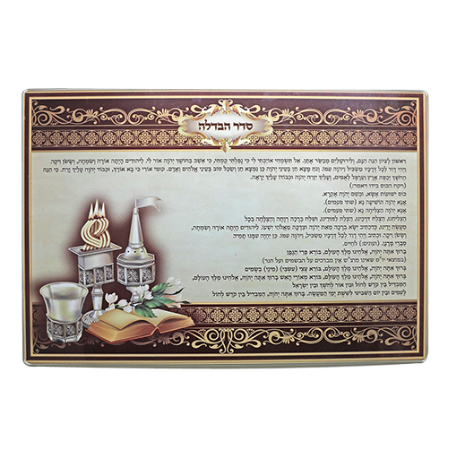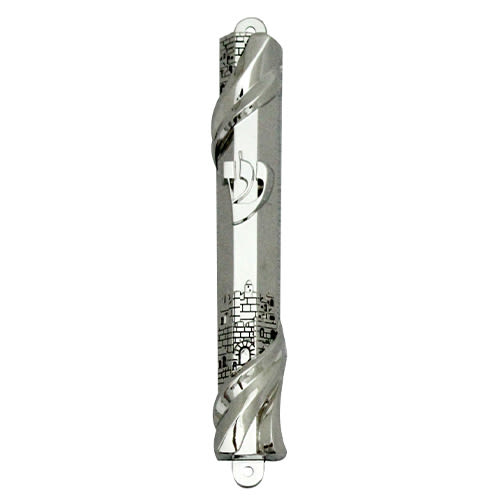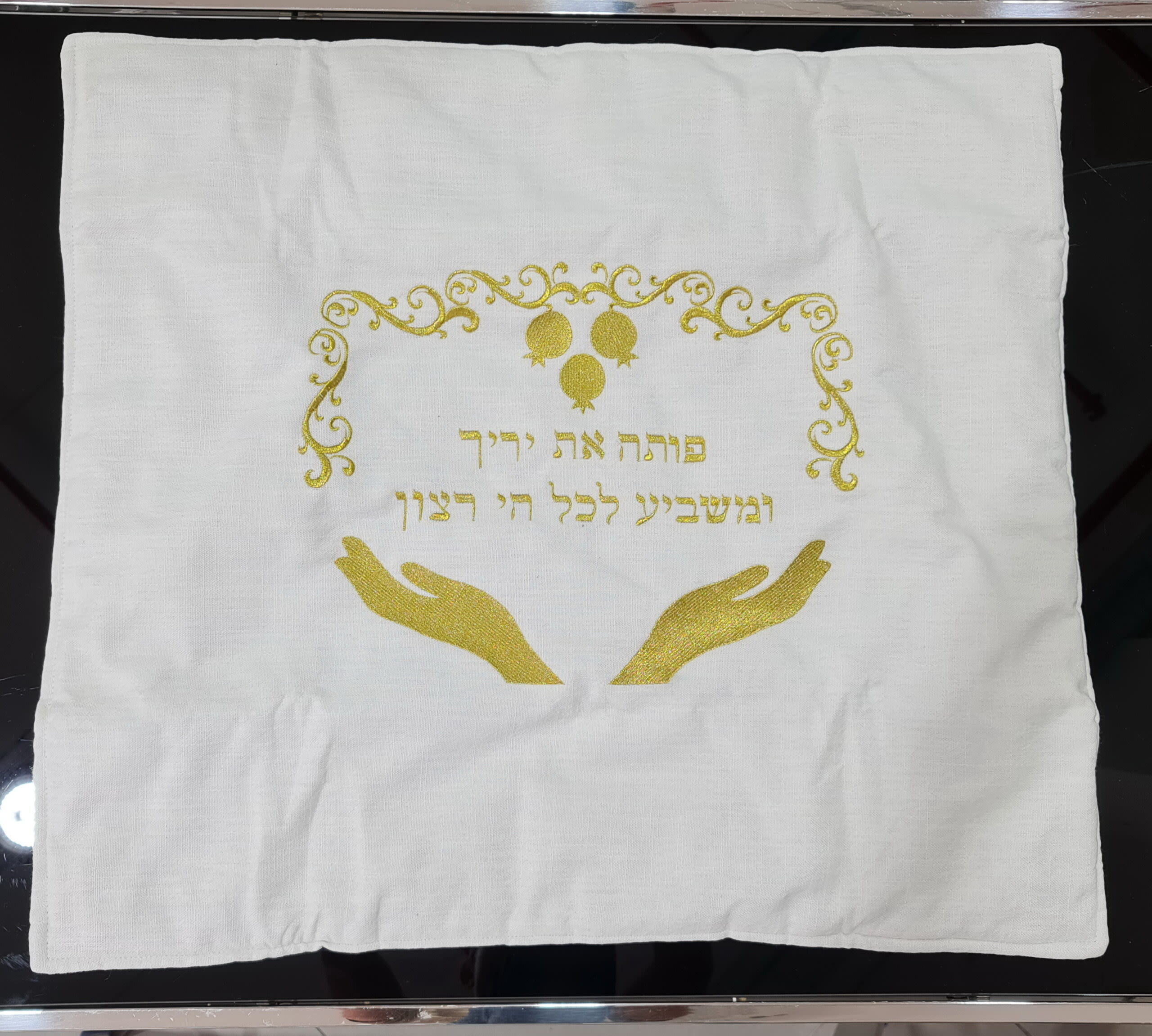
Today If You Heed His Voice
Our main effort is to treasure every moment of the present and to realize that the only thing we have in the world is now and today...

Our main effort is to treasure every moment of the present and to realize that the only thing we have in the world is now and today.
In this world, a person has only the very day and very moment in which he finds himself. Tomorrow is a completely different world (Likutey Moharan I: 272).
The Ohr HaChaim HaKodesh wrote that a person’s soul is divided into many different parts: numerous sparks that are apportioned according to all the days of his life. Each one enlivens a particular day and, when all the sparks are exhausted, the person’s life reaches its end (Ohr HaChaim on the Torah, Bereshis 47:27, in the name of the Arizal. See also Arvey Nachal, parashas Vayechi).
This means that every day a person receives a new spark and, according to his deeds, can either rectify it or damage it. On certain days of the year, Shabbat, Yom Tov, the Ten Days of Repentance, the sparks apportioned to us are particularly refined and fragile. Then we must be extra careful in matters of halacha, Jewish law. The Shulchan Aruch states that if we eat non-Jewish bread throughout the year, we should be careful to eat only Jewish bread during the Ten Days of Repentance (Shulchan Oruch, Oruch Chaim 603:1). One might ask, if non-Jewish bread is prohibited during these days, why is it permissible the rest of the year? And if throughout the year it is permissible, why forbid it now? The answer lies in the quality of the sparks of those days.
Just as the body is made up of 613 limbs and sinews, so too, is the soul composed of 613 divisions. Its “limbs and sinews” correspond to the days of the year. Just as the body has vital organs and secondary ones, so does the soul. The secondary organs are sparks operative during the week. These do not become damaged if we fail to observe some stringency of law, or engage in mundane conversation. Yet the sparks that are operative on Shabbat or Yom Tov are the vital organs of the soul, and we must be very careful not to damage them.
The Bedside Krias Shema
According to Rabbi Chaim Vital, the recitation of the bedside Kriat Shema is an important time for self-reflection. At this decisive moment, the day’s spark is about to leave, and a new one will take place. Yet the departing spark can still be rectified through teshuva, confessing one’s sins to God, and preparing for the new spark that is arriving.
It is said that the effort one puts into reciting the bedside Kriat Shema with concentration and faith will be ultimately be reflected in the way the person returns his soul to his Maker at the end of his life – in teshuva and belief in God’s absolute Unity (See Sha’arei Kedusha 1:1 Where Rabbi Chaim Vital compares sleep to death).
Tzaddikim Come “With All Their Days”
This is the inner meaning of the phrase “Tzaddikim come with all their days.” Each day of their lives is full. On the verse: “And Sarah lived one hundred, twenty and seven years” (Bereishit 23:l), the Arizal writes: One hundred represents the Sefirah of Keter; twenty represents the Sefirot of Chochmah and Binah: seven represents the seven lower Sefirot; Chesed, Gevurah, Tiferet, Netzach, Hod, Yesod and Malchut (Likutey Torah, Chayei Sarah). That means that Sarah perfected all ten Sefirot – the entire spiritual “body.” The verse also says that Avraham (Abraham) “came with his days” (Bereishit 24:1), that is, with every spark of his soul from every day of his life.
At the funeral of the Imrei Emet of Gur, his son, the Beit Yisroel, was heard to comment, “My father had length of days.” When someone remarked, “But he only lived to be sixty-six,” the Beis Yisroel retorted, “Length of years he did not have, but he did have length of days.”
Each Day is Completely New
Rabbi Nachman taught that every day is a completely new world (Likutey Moharan I:272). Each day makes use of a different spark and, even if a person perfects today’s spark, he will still have to work on tomorrow’s.
Yet the Evil One steals our days, one at a time. He confuses us with worries over the past and future, which are not under our control at all. A day here or there seems insignificant, but in the end, all the days of one’s life, with all their holy sparks, will be lost.
The Main Thing is the Present
Therefore, our main effort is to treasure every moment of the present and to realize that the only thing we have in the world is now and today. It doesn’t take great wisdom to hold onto the present, only the honesty and simplicity to recognize exactly what one needs to do at that instant. For example, a person walking in the streets knows that he should not let his eyes stray to improper sights. When he prays, he knows that he should answer Amen or respond to Kaddish with concentration. In yeshiva, he knows that he should study Torah another hour without interruption – whatever is right for that particular time.
Awareness of our responsibilities can also save us from wasting our lives in trivialities. This is the only way we can perfect ourselves. When we worry about the future, we are going ahead of our days: when we worry about the past, we tail behind them. In neither case are we actually going with our days. But, if we put all our attention into the present, then we fulfill the verse, “And Avraham was old, he came with his days” (Bereishit 24:1).
The Spiritual Wealth of Each Passing Moment
I heard a story about a great Torah scholar of the previous generation who was known for his remarkable diligence in study; he finished the entire Talmud many times. At the completion of one such cycle, he made an especially beautiful banquet. Why was this occasion so special, his family asked him? Hadn’t he finished the Talmud many times before? He explained that this time was especially dear to him because he had done it all in his spare time. He always carried a small Gemara with him wherever he went, and would study from it during those spare moments that other people ignore: traveling, eating or waiting in line. This accomplishment made him extremely happy and so he made a special banquet. There are some people whose lives are so preoccupied by different projects that the only way they can even finish a book is by snatching up these free minutes. It only requires alertness and enthusiasm.
(Used with permission from the author. From the book "In all my Ways" Keren Ohr Publications)











Tell us what you think!
Thank you for your comment!
It will be published after approval by the Editor.